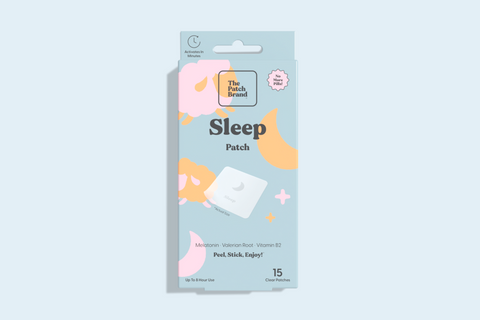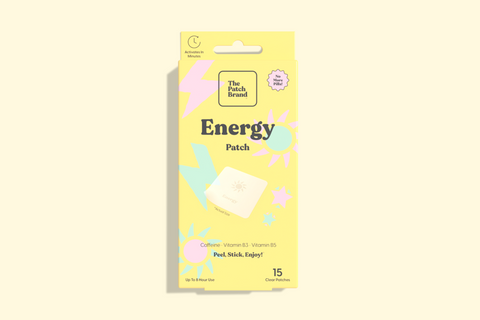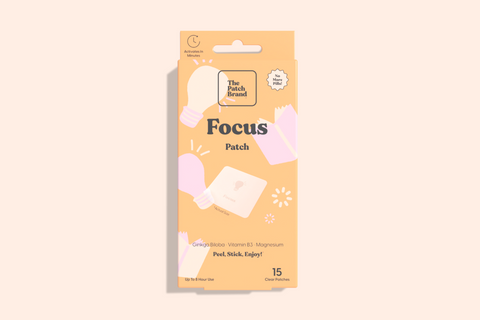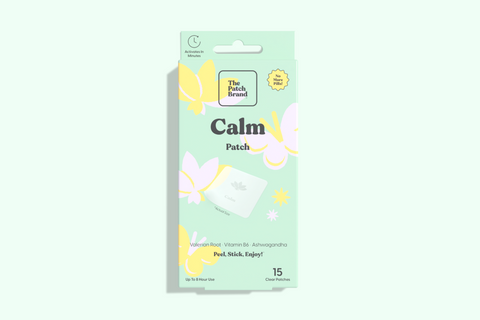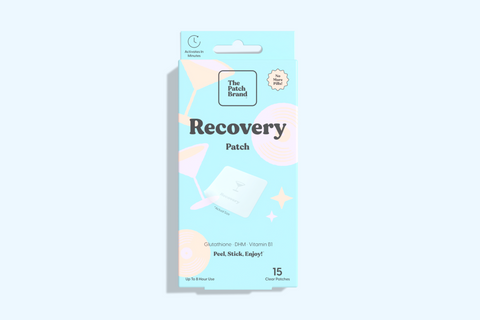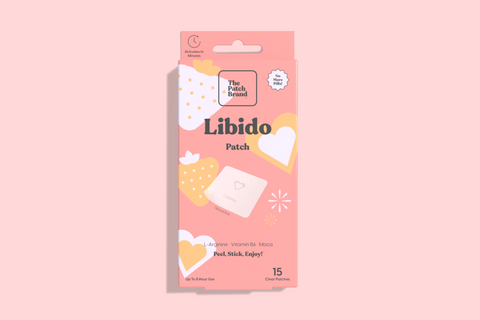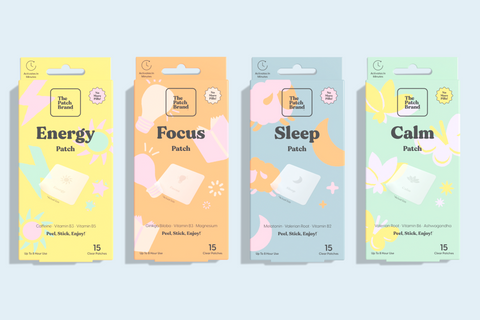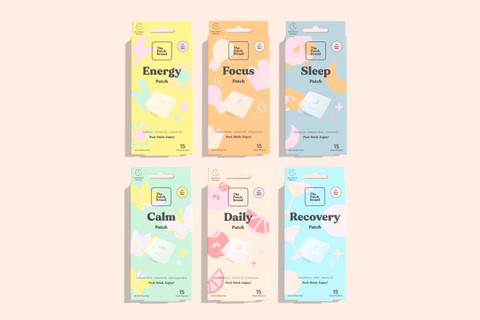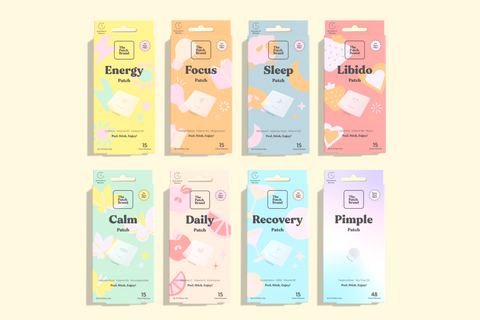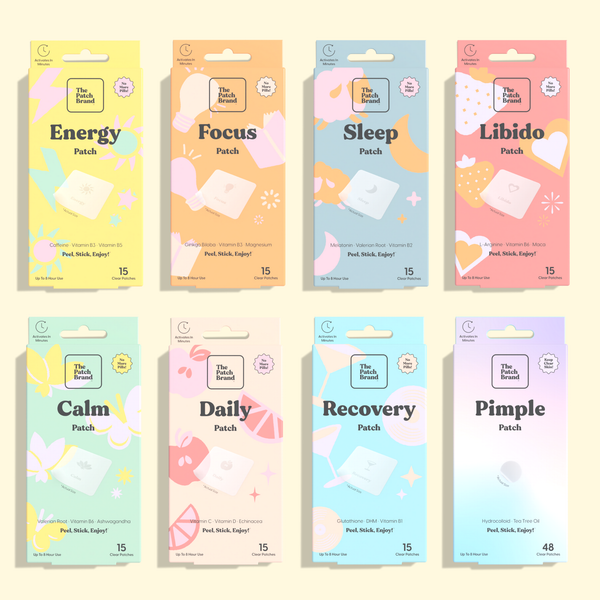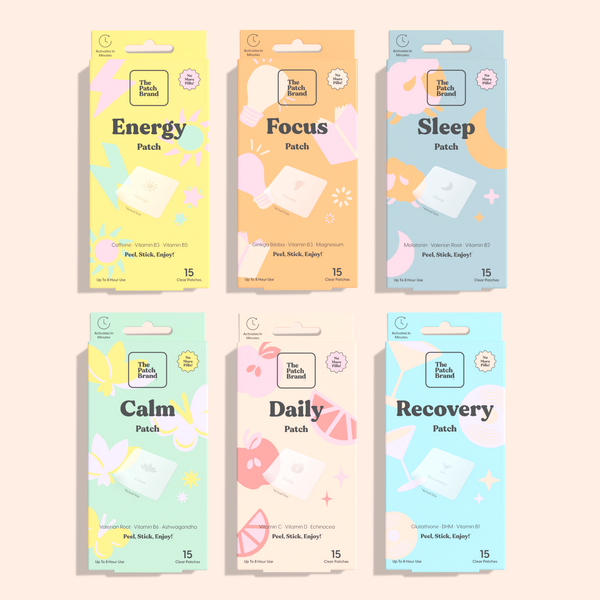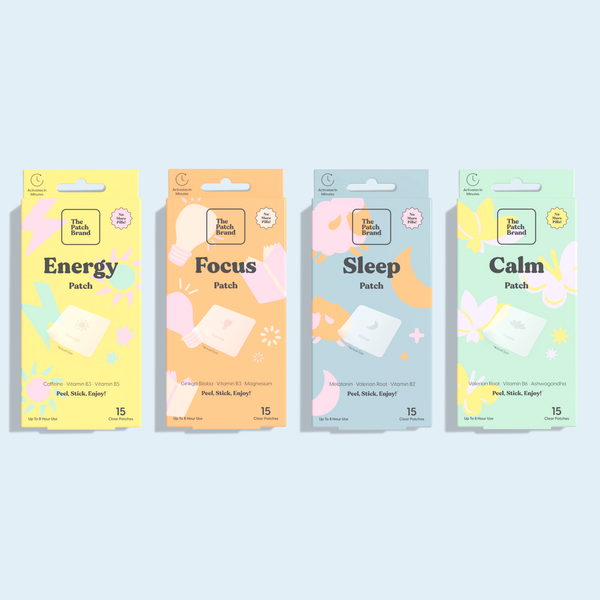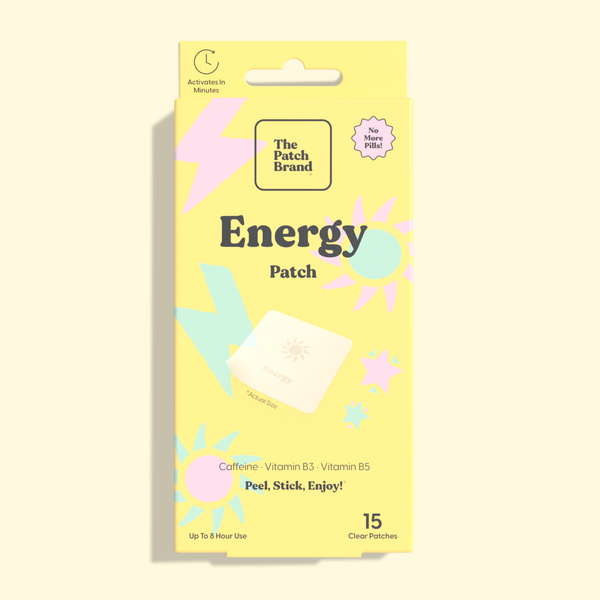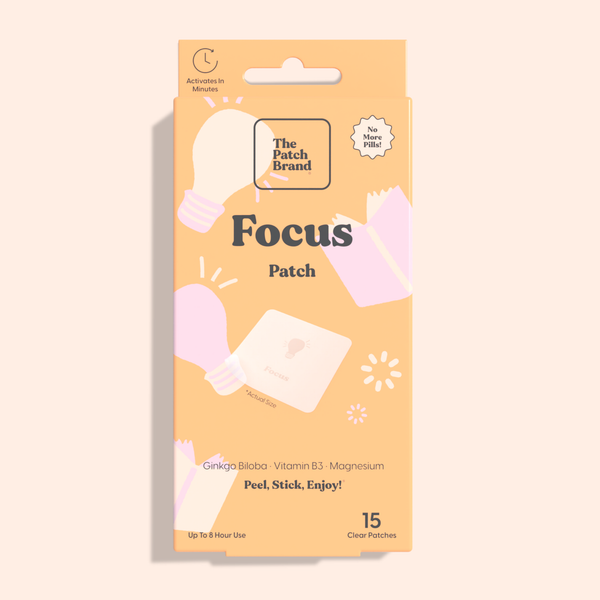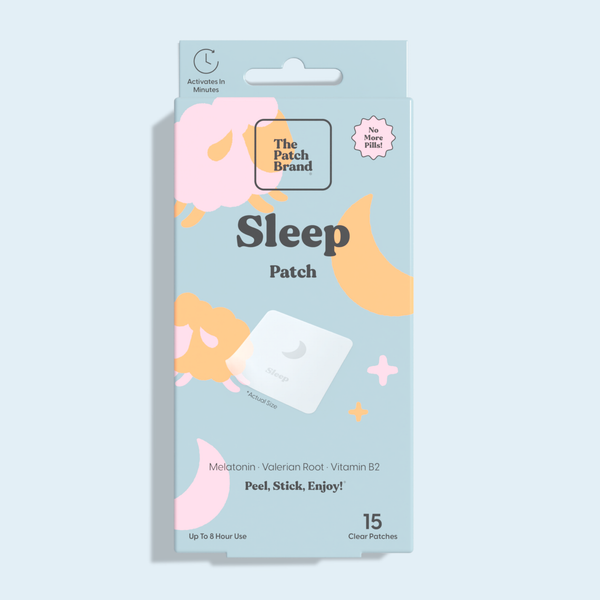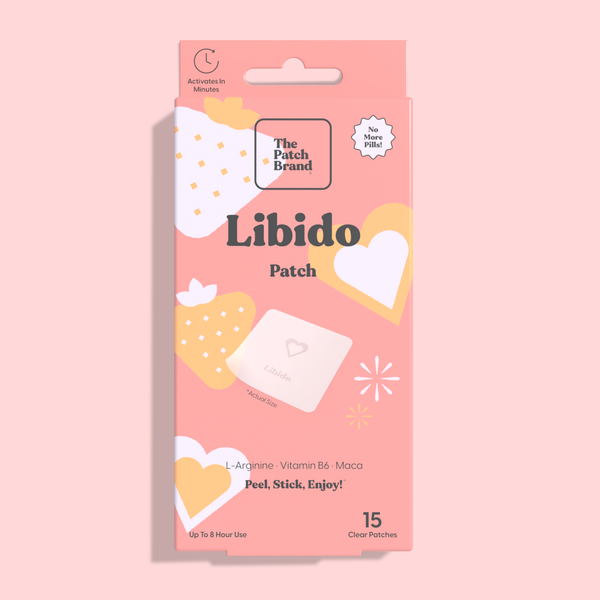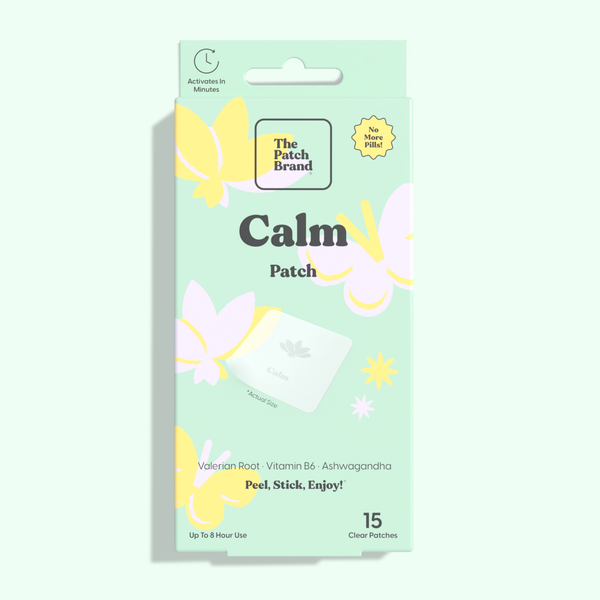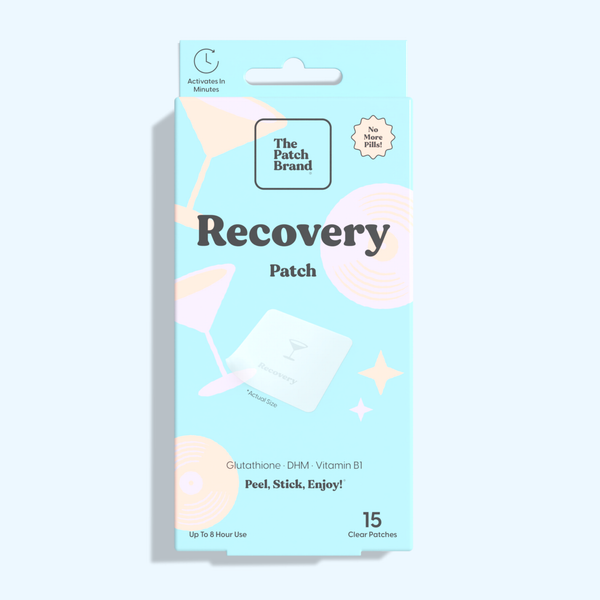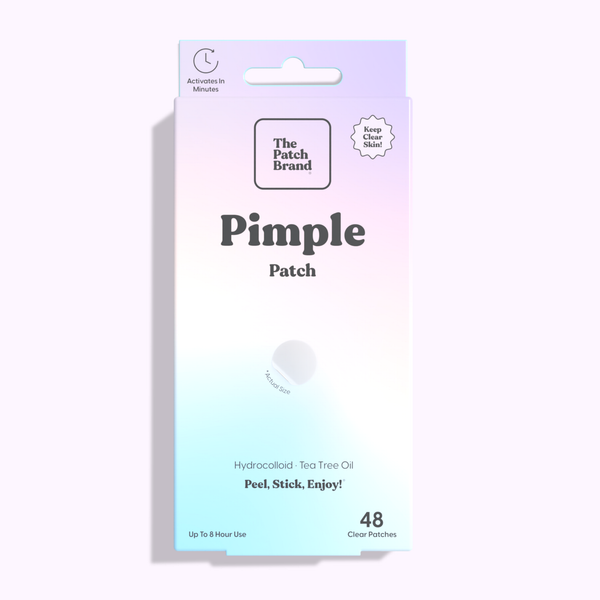Sleep is more than a period of rest; it's a fundamental pillar of good health. When we're well-rested, our minds are sharper, our emotions are balanced, and our bodies are more equipped to fight off disease. But what if peaceful, rejuvenating sleep seems elusive? Here, we'll delve into several practical strategies to help you achieve a deeper, more restful sleep. One strategy involves the use of an exciting innovation:
sleep patches.
Unveiling Sleep Patches
As we seek to boost the quality of our sleep, it's crucial to explore all available aids. This section sheds light on sleep patches - an innovative tool designed to provide a host of benefits that promote deep, rejuvenating sleep. Sleep patches are transdermal patches that slowly release a blend of sleep-promoting substances into the body. These
patches for sleep work by delivering a steady supply of sleep-supporting ingredients directly through the skin, bypassing the digestive system and making them more bioavailable than oral supplements.
The
best sleep patches provide numerous advantages. They are convenient, easy to use, and, most importantly, effective. Sleep patches can help users fall asleep faster, achieve a deeper level of sleep, and wake up feeling more refreshed.
Establishing a Calming Routine
Creating a routine that tells your body it's time to wind down can significantly improve your sleep quality. In this part, we'll delve into how you can cultivate a calming bedtime routine, including the use of a sleep aid patch.
The Influence of Bedtime Rituals
The influence of bedtime rituals on our sleep cannot be underestimated. Establishing a consistent bedtime routine, we send a clear signal to our bodies that it's time to wind down and prepare for a restful night. The beauty of these rituals lies in their flexibility - they can be as simple or elaborate as we desire, but what truly matters is the consistency they offer.
Building Your Calming Routine
To build a calming bedtime routine, there are various activities one can incorporate. Reading a book can transport us to a different world, helping us unwind and shift our focus away from the day's worries. Taking a warm bath can provide a soothing experience, melting away the tension from our muscles and promoting relaxation. Engaging in mindfulness practices, such as meditation or deep breathing exercises, allows us to quiet our minds and find a sense of inner calm.
For those seeking extra aid in their quest for a good night's sleep, including a sleep aid patch in their bedtime routine can be beneficial. These patches are designed to promote relaxation and help individuals ease into sleep more effortlessly, contributing to a more rejuvenating sleep experience overall. Incorporating these calming activities and sleep aid patches into our nightly rituals, we can enhance our chances of achieving peaceful and restorative sleep.
Crafting Your Sleep Sanctuary
Creating a sleep-friendly environment is paramount when it comes to maintaining good sleep hygiene. The conditions in our sleep space can greatly impact the quality of our rest. To optimize this environment, it is essential to ensure that the room is dark, quiet, and cool. Blocking out external light sources with the help of blackout curtains can promote deeper and more uninterrupted sleep.
Additionally, using a white noise machine can mask any disruptive sounds and create a soothing atmosphere conducive to relaxation. Investing in cooling bedding, such as breathable sheets or a mattress topper, can regulate body temperature and prevent overheating, enhancing comfort throughout the night. Decorating the sleep space with calming colors and keeping distractions to a minimum, such as removing electronic devices or minimizing clutter, can further improve sleep quality by promoting a sense of serenity and tranquility. By optimizing our sleep environment, we can create the ideal conditions for a restorative and rejuvenating sleep experience.
Tackling Stress for Sleep
Stress, anxiety, and sleep are deeply interconnected, and managing these elements can significantly impact overall well-being. When stress and anxiety interfere with sleep, it becomes vital to adopt effective strategies to handle these emotions and improve sleep quality. Let's explore how to effectively manage these emotions and the role of a sleep vitamin patch in fostering a more peaceful night's rest.
-
Stress, Anxiety, and Sleep: Stress and anxiety often interfere with sleep, creating a vicious cycle where lack of sleep exacerbates these conditions. To combat this, it's essential to find ways to manage stress and anxiety before bedtime. One effective approach is engaging in relaxation activities such as yoga or deep breathing exercises. These activities promote physical and mental relaxation, helping to calm the mind and prepare for sleep. Another beneficial practice is journaling, which allows individuals to process their thoughts and emotions. Writing down worries or concerns can create a sense of clarity and relief, setting the stage for a more peaceful transition into sleep. By adopting these strategies, individuals can address the root causes of sleep disruption and improve their overall sleep quality.
-
Alleviating Stress for Better Rest: To further enhance relaxation and improve sleep quality, incorporating a sleep vitamin patch into the nighttime routine can be highly beneficial. These patches are designed to provide essential nutrients that aid in calming the mind and preparing the body for restful sleep. The nutrients in these patches often include vitamins and minerals known for their calming effects, such as magnesium and melatonin. People can increase their chances of getting a restful night's sleep by treating stress and anxiety holistically and giving their bodies the tools they need for relaxation.
Finding the right balance between managing stress and promoting restful sleep requires a combination of strategies. By incorporating journaling and using sleep vitamin patches, individuals can alleviate stress and anxiety, paving the way for better rest.

Embracing Relaxation Techniques
Relaxation techniques can serve as powerful allies in your quest for better sleep. Here, we'll explore different techniques and how coupling them with a sleep patch can enhance their effectiveness.
Relaxation and Sleep
Incorporating relaxation techniques into our routine can have a profound impact on the quality of our sleep. These techniques help to quiet the mind, release tension from the body, and create a state of calmness, making it easier to drift into a restful slumber.
Relaxation Techniques to Try
There are various relaxation techniques worth exploring. Progressive muscle relaxation involves systematically tensing and then relaxing different muscle groups, promoting physical relaxation and easing overall bodily tension. Guided imagery allows the mind to visualize peaceful and serene scenes, facilitating a sense of tranquility. Meditation encourages mindfulness and focuses attention on the present moment, promoting a state of mental relaxation.
To enhance the efficacy of these relaxation practices, combining them with the application of a
patch for sleep can be beneficial. Sleep patches are specifically formulated to support relaxation and induce a sense of calm before sleep. By incorporating relaxation techniques and using a
sleep patch, we can optimize our chances of experiencing a deeper, more rejuvenating sleep that leaves us feeling refreshed in the morning.
Adopting Healthy Lifestyle Habits
Improving sleep is a crucial component of maintaining overall health and well-being. Cultivating healthy sleep habits can substantially enhance the quality of your rest, resulting in elevated energy levels, improved mood, and increased productivity throughout the day. Incorporating these strategies into your routine can have a profound effect on your sleep quality and, consequently, your overall health:
-
Balanced Diet: Consuming heavy or sugary meals close to bedtime can interfere with your ability to fall asleep and stay asleep. Instead, opting for foods rich in tryptophan, magnesium, and calcium can promote relaxation and improve sleep quality. These nutrients are found in foods like dairy products, nuts, and leafy greens, and incorporating them into your evening meals can be beneficial. Moreover, being mindful of meal timing is crucial, as eating large meals too late can cause indigestion and discomfort during the night. By being conscious of your dietary choices and when you eat, you can significantly enhance your sleep experience. This approach ensures that your body is well-nourished while also primed for a restful night's sleep.
-
Regular Exercise: Engaging in regular physical activity helps regulate the body's circadian rhythm, which controls the sleep-wake cycle. Incorporating exercise into your daily routine can enhance alertness and focus during the day while promoting deeper sleep at night. However, it's important to schedule workouts wisely. Engaging in vigorous exercise close to bedtime can increase alertness and hinder your ability to wind down. Light exercises, such as yoga or stretching, are ideal for evening routines, helping the body relax and prepare for rest. Intense workouts, on the other hand, are best reserved for earlier in the day. By aligning your exercise routine with your body's natural rhythms, you can optimize your sleep quality and overall well-being.
-
Caffeine and Alcohol: Caffeine, a stimulant found in coffee, tea, and many soft drinks, can remain in your system for several hours, making it difficult to fall asleep. Limiting caffeine intake, especially later in the day, is advisable to prevent sleep disruption. Similarly, while alcohol might initially induce sleepiness, it can fragment sleep cycles and lead to poor-quality rest. Moderation is key when it comes to these substances. Avoiding caffeine and alcohol in the hours leading up to bedtime can help ensure a peaceful and uninterrupted night's sleep, allowing your body the time it needs to rest and rejuvenate.
-
Light Exposure: Light exposure plays a vital role in regulating the body's internal clock. Natural light exposure during the day helps synchronize the circadian rhythm with the environment, promoting daytime alertness and preparing the body for nighttime sleep. In the evening, reducing exposure to artificial light, especially from screens, is crucial for melatonin production, a hormone necessary for sleep. Creating a dim and relaxing environment in the evening signals to the body that it's time to wind down and prepare for rest. By managing light exposure effectively, you can align your body's internal clock with your sleep schedule, enhancing both the quality and duration of your sleep.
Incorporating these practices into your daily routine can create a strong foundation for improved sleep quality. By focusing on a balanced diet, regular exercise, mindful consumption of caffeine and alcohol, and proper light exposure, you can cultivate healthy sleep habits that support overall well-being. Additionally, integrating
vitamins for sleep, such as those found in sleep patches, can further enhance your sleep quality by supplementing essential nutrients and promoting relaxation.

Consistent Use of Sleep Patches
Sleep Patches for Long-Term Improvement
By regularly incorporating the best sleep patches into your routine, you can experience noticeable and sustained improvements in the quality of your sleep over time. Sleep patches work through the controlled release of active ingredients designed to promote relaxation and enhance the sleep experience. These patches often contain a blend of natural sleep aids, such as melatonin or valerian root, which are known for their calming effects. With regular use, these ingredients can help regulate your sleep cycle, reduce sleep disturbances, and ultimately lead to a more restful night's sleep. The convenience of applying a patch before bed and allowing it to work overnight makes this an attractive option for those seeking a hassle-free approach to better sleep. Over time, the consistent use of sleep patches can result in improved sleep patterns, better overall health, and increased daytime alertness.
Incorporating Sleep Patches into Your Regimen
The key advantage of sleep patches lies in their ability to provide a steady release of sleep-promoting ingredients throughout the night, facilitating deep and restful sleep. Many of these patches contain the best vitamin for sleep, such as vitamin B6, which supports melatonin production. Incorporating sleep patches into your regimen can help you establish a relaxing bedtime ritual, further enhancing your overall sleep quality and promoting a healthier lifestyle.
Achieving restorative sleep is crucial for overall health and well-being, and leveraging innovative solutions like sleep patches can significantly enhance sleep quality. By creating calming bedtime routines, crafting a sleep-friendly environment, managing stress, and adopting healthy lifestyle habits, you can optimize your chances for a rejuvenating night's rest. Incorporating relaxation techniques, consistent use of sleep patches, and mindful habits can lead to lasting improvements in sleep patterns, boosting energy levels, mood, and productivity. By integrating these strategies into your daily routine, you set the foundation for a healthier, more vibrant life. Prioritizing sleep through balanced nutrition, regular exercise, moderation in substance use, and effective light management, alongside sleep aids, helps ensure consistent, high-quality rest, empowering you to embrace each day with renewed vitality and focus.


